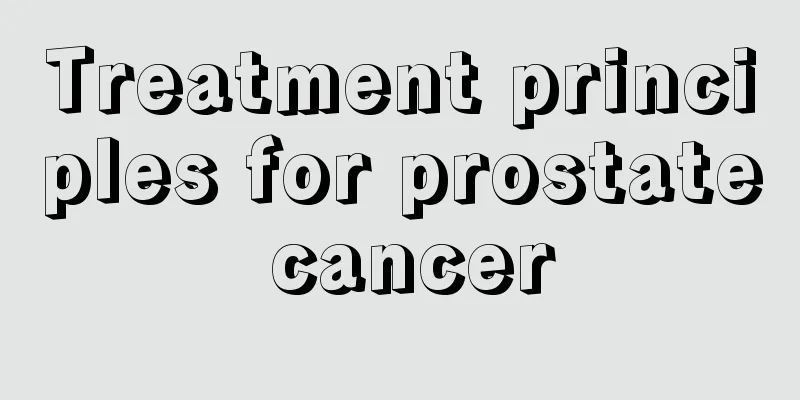What is the longest life expectancy of nasopharyngeal cancer patients and how to care for them

|
If you suffer from nasopharyngeal cancer, you should face it with an optimistic attitude. Here is an introduction to the longest life expectancy of nasopharyngeal cancer patients and how to care for patients. Nasopharyngeal carcinoma is a malignant tumor originating from the epithelium covering the nasopharyngeal mucosa. It is one of the most common malignant tumors in my country, with a high frequency of malignant transformation and an average natural survival time of 18.7 months. The onset is hidden and it is difficult to be detected in the early stage. The causes of nasopharyngeal carcinoma include Epstein-Barr virus infection, genetic factors, and some unhygienic diets. Post-treatment care for nasopharyngeal carcinoma mainly includes three aspects: skin care, oral care, and nasopharyngeal care. 1. Skin care: Patients need to keep the irradiated skin clean and dry, avoid using alkaline soaps, ointments, cosmetics, prevent mechanical stimulation, friction and scratching, avoid hot compresses, apply peppermint starch for local itching, and apply hydrogenated oil for mild exudation or ulceration. 2. Oral care: Patients need to pay attention to oral hygiene, brush their teeth with a soft-bristled toothbrush, and rinse their mouths with saline or Dobel's solution. It is best to brush and rinse your mouth after meals and before going to bed. Tooth extraction is not allowed within three years after radiotherapy, otherwise it will cause extensive bone necrosis. 3. Nasopharyngeal care: Patients need to keep the nasopharyngeal cavity clean and rinse the nasal cavity 2-3 times a day. In addition, 0.25% chloramphenicol eye drops can be used for nasal drops and chloramphenicol solution can be sprayed on the throat and oropharynx 2-3 times a day. The longest life span of a nasopharyngeal carcinoma patient can be very long or even completely cured, or it can be very short, a few months or even a few days. The specific life span of a patient varies from person to person. Regular follow-up examinations should be done for nasopharyngeal carcinoma. 80% of nasopharyngeal carcinoma recurrences occur within 2 years after radiotherapy, and 90% occur within 3 years. Therefore, frequent follow-up examinations should be conducted within 2-3 years after radiotherapy, once every 1-3 months, and then gradually extended; pay attention to oral hygiene, do not extract teeth within 2-3 years after radiotherapy, but fill them; strengthen nutrition, pay attention to rest, and exercise appropriately. |
<<: What causes cervical cancer in children
>>: What is breast cancer chemotherapy? What are the chemotherapy options for breast cancer?
Recommend
What to do if your face is burned by a cigarette butt
Many people will get ashes everywhere when they s...
What should you pay attention to before and after prostate cancer surgery
There are many treatments for prostate cancer, bu...
Early symptoms of endometrial cancer
In life, many patients with uterine cancer feel d...
What are the effects and functions of Cassia tora?
Cassia tora is what we call Cassia seed. Everyone...
How to blow dry your hair after washing it so it doesn't become frizzy
Many friends are accustomed to using a hair dryer...
Intravesical chemotherapy and immunotherapy
My grandfather has bladder cancer, but fortunatel...
What causes itchy scalp? Experts answer your questions
Sometimes people will find that their scalp is pa...
Pregnancy-induced convulsions
The reason why pregnant women need to go to the h...
The best medicine for migraine
Migraine is a relatively common type of headache ...
Can patients with pancreatic cancer get pregnant?
Can pancreatic cancer patients get pregnant? If t...
What is the reason for the cold chest during infusion
When you are sick, intravenous infusion can help ...
Mid-term treatment costs for lymphoma
Because lymphocytes are the health of the human b...
What is the cause of death from pancreatic cancer
Pancreatic cancer is a malignant tumor with poor ...
What are the dangers of extracorporeal lithotripsy for kidney stones
Of course, we should pay attention to the correct...
How long can you live with early osteosarcoma
With the advancement of neoadjuvant chemotherapy ...









